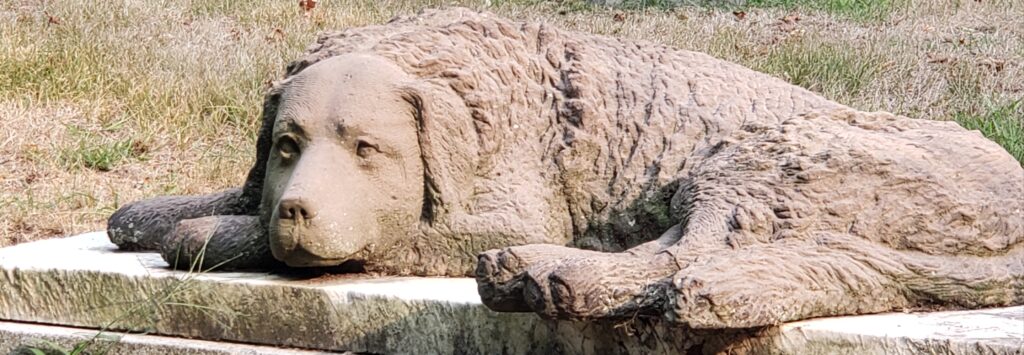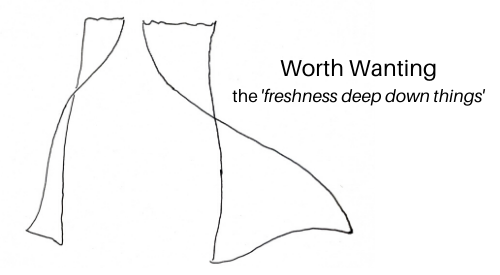
What makes something or someone an other? Otherness is the disposition to resist and insist, that is, to resist being manipulated or managed, and to insist on showing up as who or what it is. Otherness is a kind of stubbornness.
We use this word ‘stubborn’ to express our frustration when someone or something refuses to go along with our program. But we also use it to express our admiration when someone or something refuses to give in to what would diminish or distort it.
“Facts are stubborn things,’ said John Adams at the trial of the British solders after the Boston Massacre, “and whatever may be our wishes, our inclinations, or the dictates of our passion, they cannot alter the state of facts and evidence.”
Nature is ultimately stubborn, only manipulable to a large, but not a total extent. As a system of systems, it responds to our ingenuity on the small scale, but evades or overwhelms our control in the large. We set our room temperatures but only predict hurricanes.
Freshness is stubborn. It won’t be replaced, and it won’t go away. Beginnings and occasions of invigoration are common and welcome in our mundane lives, providing the new starts and energy. But these work only to a certain extent and for a limited time without the order, purpose and meaning and these we find in transcendent freshness which is constantly wooing us into encounter others and itself.
Mankind is nature’s ultimate experiment (to date) in self-manipulation, we continually shaping ourselves and also the sub-worlds that serve our programs of self-affirmation, self-preservation, and self-reward. Who or what within our horizon that is not us, not ours, is not of, or for, or by us, is tamed, managed, and given its part to play within the routines of our lives. We transform actual others, respected for their ability to insist or resist, into as-if or virtual others.
There are, of course, actual others out there, available to be recognized and addressed as you, and freshness, the prime example of an actual other, continually invites us to encounter it and them, that is, to make common cause with their livingness, so we may discover in them, and for ourselves, the beyondnesses, interestingnesses, unsuspected/unexpectednesses which, in fact, truly refresh.
If we approach the transcendent pro forma, and imagine that freshness is ‘on the team’, we may be surprised when sometimes it doesn’t show up for the game. If we take transcendent as fiction, we are at a loss where to look when ordinary freshness has gone stale and some empowering vision is essential to go on. Both are disappointing and frustrating experiences. Freshness doesn’t show up in the places we provide or the processes we promote; it does, however, always show in unscripted encounters.
The otherness of freshness is not a matter of unfamiliarity, nor of exceptional powers, nor of inscrutability. Freshness is not mortal, nor is it localized, nor is it exhaustible, but that’s only part of its otherness.
Freshness is other, yet it is lover, but freshness is other, because it is lover, lover of us, all of us, all creation, as we are, as we are becoming. As much as lovers have in common, they are not identical, entangled but distinct, a communion, not a merging. Lovers, those not codependent, or in mutual self affirmation, preservation or reward, but actually making common cause with the other, resist manipulation of and by the other, or themselves, or their mutual space, while still insisting on being present as themselves to the other. That space is encounter space where freshness roams.
We and nature, together constituting the mundane, are other to transcendent freshness, and freshness is other to us in the deepest, most intimate way, and in encounters, we each address, are addressed, and moved by that otherness.
Freshness–other yet lover–is always, stubbornly, inviting us to encounter, and freshness–lover, so other–is always, stubbornly, meeting us there, as we, stubbornly, meet there someone or something other to us.
